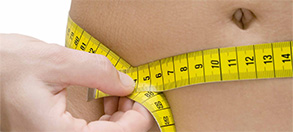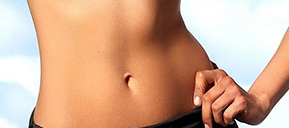Consultations offered at our three convenient locations in Houston, Katy, and Webster, TX

High-carbohydrate foods are both high in calories and low in satiety, meaning they don’t reduce feelings of hunger as much as other foods. A low-carb diet limits high-carb foods like breads, pastas, and sugary desserts, and replaces them with fats, proteins, and fiber. This results in an overall decrease in calories while also reducing hunger and evening out blood sugar, preventing “crashes” that can lead to breaking your diet.
Low carb diets restrict high carbohydrate foods but allow some carbs. Ketogenic or “Keto” diets restrict carbs to an extremely low level and require strict maintenance, but once there your body switches to burning fat as its primary source of fuel, resulting in rapid weight loss.

Foods to Avoid
Both Keto and Low carb diets are restrictive diets, meaning they require you to give up certain types of food. Because of this, some people may find them difficult to stick to long-term. However they can be very successful for short-term weight loss. One thing you will become aware of when attempting to reduce your carbohydrates is that carbs are everywhere, in places you might not expect.
| Sugary Drinks, Candies & Desserts Sodas, candy, pies, cookies, cakes, donuts, most breakfast cereals | Tropical & Dried Fruit Bananas, pineapple, mangoes, dates, figs, raisins |
| Starches Pasta, bread, rice, potatoes, French fries, pancakes & waffles, pizza | Processed & Breaded Meat Chicken nuggets, sweetened sausage, fast food patties, fried chicken |
| Alcohol Mixed Drinks, beer & wine |
For a more in-depth list of foods to eat and foods to avoid, take a look at our Low Carb Quick Reference.
Short Term Low Carb & Keto Side Effects (With Solutions)
Sudden changes in your diet may affect your bodily functions for a short period of time. These are more common on the Keto diet but you may also experience them on low carb diets as well. Always speak with your doctor before beginning a low carb diet, especially if you have conditions like Type 1 Diabetes or hypertension, as you may need to take additional measures.
Symptoms: On your first few days of Keto, you may develop flu-like symptoms including dizziness, nausea, and fatigue. This is commonly called the “Keto Flu.” Symptoms are generally much less severe on low-carb diets but you may also experience some of these.
Solution: With less carbs, you may find yourself low in electrolytes such as sodium, partially due to lower overall water retention. Drink some chicken or vegetable broth, and symptoms will dissipate.
Symptoms: Leg cramps, reduced physical performance, minor heart palpitations
Solution: Make sure you get enough electrolytes, especially magnesium. Take supplements if needed. With reduced performance, give it time; sometimes your body just needs a week or two to adjust.



